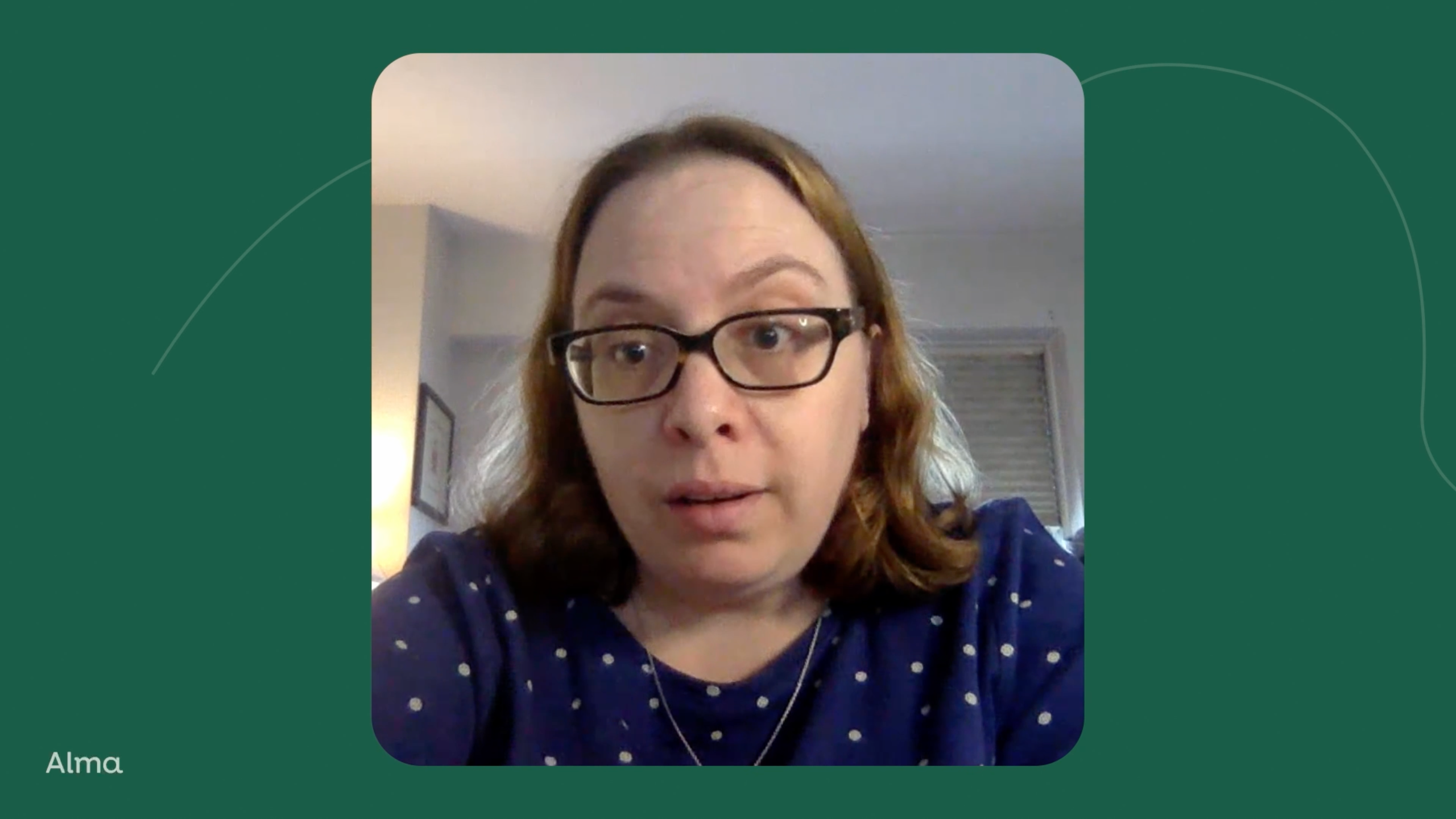
7 Things to Consider Before Starting a Therapy Private Practice
So today we're going to be answering your commonly asked questions about therapy and private practice. My name is Matt. I'm a therapist in private practice.
I own a group practice located in New York City, and I also like to make videos all about running private practice. Links to all of that stuff will be down below in the description.
But let's jump right into your questions and the first question is this...
And the first thing I'd like to share with people is: build slow.
I like to describe it as just dipping your toes into the pool. We don't need to do a cannonball into the deep end unless you really want to.
And so maybe you just start with one or two clients per week and you try that out, and you see how it feels. You go through the process of onboarding a client, seeing a client, and you do that in addition to your full-time job.
And each step of the way, you want to assess what you're able to handle. So maybe you get to two and you feel like, "Hey, this is not really a big deal. I think I can manage this." And you bump up to three and then you bump up to four, and maybe you say, "Hey, whoa, five. That's feeling like a bit much." And we stick right there.
Eventually, though, you'll realize that there's a turning point where you can either stay at your full-time job while keeping a small caseload, or you can start transitioning more into full-time private practice.
But again, take it slow, dip your toes in, see how it feels, assess each step of the way and go from there.
And let me just first normalize this: Starting a private practice is an emotional rollercoaster, although it's really exciting and it's really rewarding and really fun, there's ups and there's downs.
I feel like that's not normalized enough.
And one of the first things to think through is that people often wait until they feel “ready” to start a private practice, but don't bank on feeling ready.
It often takes that first leap, that first step, that first action item to make yourself start. And then from there the ball will start rolling and you'll really pick up some steam.
The other thing along with that, though, is we don't need to go super fast. We can actually take it slow. So break it down into chunks.
So maybe the first thing is establishing a business entity. Maybe after that you decide to get all your profiles up and running so that clients can find you. Then after that, maybe you decide to start taking insurance and getting paneled.
And another piece of advice I like to give is that although there is always some degree of risk when starting a private practice, you do want to minimize this. And the way we can do that is by seeking out consultations.
You want to seek out consultations from attorneys, from accountants, perhaps from other therapists who have gone into private practice.
And that is really going to be huge.
Similar to that, you want to get into the habit of adopting a curious mind, ask a ton of questions. If you don't know something, start to research it, ask people — and you really want to put on your learning cap, because there's going to be a ton of things that are so new.
And then once you've developed enough knowledge and understanding through the research and consultation, you'll be ready to take action... and also be ready to make mistakes.
Inevitably, we all make mistakes when starting a private practice — some small, some big. But we're going to make mistakes. So just be ready for that.
And in addition, there are tons of tools that have made starting a private practice much easier. For example, Alma, they can get you paneled with insurance companies really quick.
They have a directory that you can list yourself on and they just make the process of starting a practice much easier. And there's other tools like that. So don't be afraid to use the tools at your disposal.
So, accepting insurance used to mean unsustainable reimbursement rates.
However, I've noticed that there's been a shift, and insurance reimbursement rates are starting to become more competitive.
Now, is it going to be the same as cash pay? Absolutely not. [But] are you going to be able to make a living if you're an all-insurance-based practice? Yeah, I definitely think you can.
Not to mention, a lot of people are trying to use insurance when seeking a therapist. So potentially, you'll be able to build a caseload faster, with more clients reaching out and a wider scope of clients. And so you'll probably never run into issues with sustaining a full practice.
The first thing we want to do is be able to identify what burnout actually is. You can look at resources like Mayo Clinic or NIH. They're going to talk all about burnout and the associated symptoms.
And number two, we want to think about short-term strategies.
These are going to be more reactionary when we're dealing with burnout, right?
So, for example, maybe it means taking some days off. Maybe it means more frequent breaks in between sessions or throughout your day. Maybe it means incorporating mindfulness or meditation throughout your days as well.
We also want to consider long-term interventions.
These are going to be things like reevaluating your schedule, and building out a calendar schedule that is more conducive to mental well-being.
We also want to think about setting and maintaining boundaries with ourself and with others.
So maybe that means shutting down the computer right at 5:00. Or maybe that means not taking client calls after 5:30, whatever the case may be. It's going to involve setting and maintaining boundaries.
We can also think about developing automations and improving our workflows. Maybe that means pre-charting before we start our day. Maybe that means using AI tools that are at our disposal.
And similarly, we can think about outsourcing tasks when we're able to do so. Maybe we hire a virtual assistant and maybe we use a biller. But don't be afraid to outsource when possible and when needed.
Now, I currently use AI in my practice more personally. I usually use it to help me generate ideas and to brainstorm more so for content creation than anything else.
But I'm currently experimenting with AI as a therapist for note taking and documentation.
And the testing I've done so far is really, really cool. I'm able to have a session and then it generates a nearly perfect note afterwards without me having to do anything.
Now, I say nearly perfect because it's not quite there yet, and so I'm still experimenting.
I do think, though, that relatively soon AI will become the new standard. It'll probably be incorporated into EHRs and note taking systems that already exist. So it’s probably good to at least get familiar with it at the very least.
Another AI question:
Now, personally, and I hope for every clinician, I put patient data, patient safety, all of that as my number one priority. I would rather not use any AI tools ever than compromise patient data or security.
So that being said, I think that AI does have a ton of potential, but it still is a very gray area.
Now there's a couple of things we can do to protect ourselves and to make sure we do follow the proper protocols.
And number one, make sure that whatever AI system or tool you're using, that it is HIPAA compliant. It's up to all the standards it needs to be.
Number two, make sure that if you are using it with a client, they know and they're informed about this. Make sure it's part of your informed consent.
There should be no gray area here. A client should always know that you're using an AI tool when you're using an AI tool.
And then finally, you should consult an attorney who's familiar with both AI and therapy to make sure that you're following all the guidelines you need to be.
Now, there are tons of referral resources out there, and there's no single source that's like a golden unicorn. But if you think about it in categories, that will be helpful.
One, you have your category of directories.
And I encourage people to list themselves on directories, perhaps more than one. Alma has a really good directory. Psychology Today has a directory. Really, what you want to do is list yourself on a directory that clients look at.
And then we can also think about the idea of networking.
Now, not just cold calling or cold emailing, because this is becoming a bit antiquated, but it could be browsing Facebook groups where people are looking for referrals.
There's a lot of therapist communities online where people put “ISO” — in search of — and you can respond to those. I've gotten several clients through those means.
And then also you can consider investing in things like Google ads, SEO, and a strong website.
These are also good marketing strategies.
All that to be said, it's important to have a broad array of referral sources, so maybe it's a few directories, maybe it's dabbling with Google ads here and there, and maybe it's networking as well, and I promise you'll be able to sustain your private practice.
Anyway, I hope you found the responses to these questions helpful. At the very least, I hope you are more inspired now than when you first turned on the video.
Mar 18, 2024

Looking for a therapist?
Get tips on finding a therapist who gets you.
By submitting this form, you are agreeing to Alma's privacy policy.



